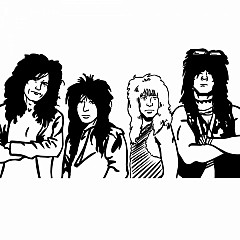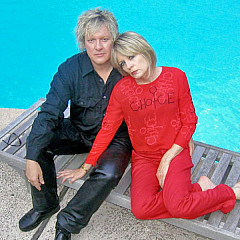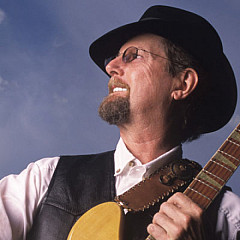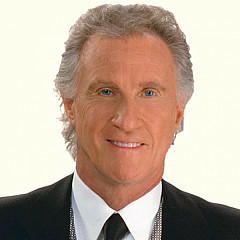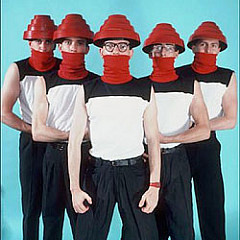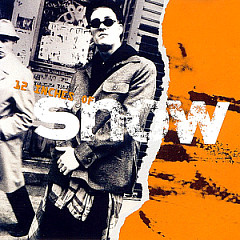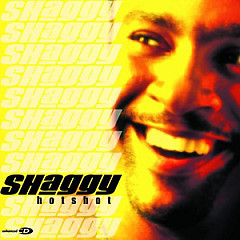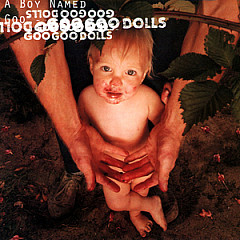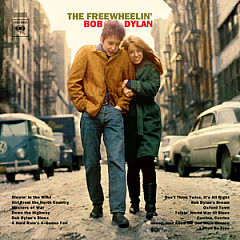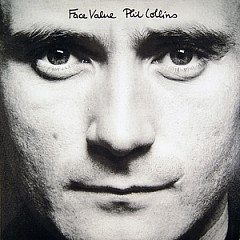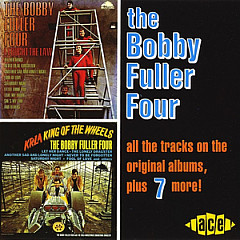Her hair shone like gold in the hot morning sun
She took all the love that a poor boy could give her
And left me to die like the fox on the run
That's the opening verse of "Fox On The Run," a UK pop hit for Manfred Mann in 1968, a country hit for Tom T. Hall in 1976, and a bluegrass standard popularized by the Country Gentlemen. It was written by Tony Hazzard, who had a nifty run of hits in his native UK, with songs recorded by Lulu ("Me, The Peaceful Heart"), Herman's Hermits ("You Won't Be Leaving") and The Yardbirds ("Ha Ha Said The Clown," "Goodnight Sweet Josephine").
These are substantial compositions, filled with shifting time signatures and devilishly clever lyrics. Tony also has a talent for making the music - the demo recordings of his hits that make up his album Tony Hazzard sings Tony Hazzard are often superior to the covers.
Tony still performs from time to time, and in 2011 released his fifth album, Songs From The Lynher. In this discussion, he tells the origin stories behind his hits, breaking down the lyrical and musical elements that make them so memorable.
 Carl Wiser (Songfacts): How do you typically write songs, and how has the process changed for you?
Carl Wiser (Songfacts): How do you typically write songs, and how has the process changed for you?Tony Hazzard: I don't have a "typical" method. Sometimes it comes from noodling around on the guitar, playing melodies and chords: sometimes from an idea, image, phrase, or feeling. The process has only changed insofar as I write far, far less these days. A lot of my songs are really piano songs but written on guitar. I have been contemplating recently about trying to write on piano, even though I'm not a pianist.
Songfacts: What was the quirk of fate that brought you into the music business?
Hazzard: Essentially, it was meeting Tony Garnett when I was an undergraduate at Durham University (UK). He was the Story Editor for the BBC Wednesday Play at the time, later TV producer and then movie producer. He listened to some of my songs and said he thought I was "commercial." I didn't know what he meant by that! He told me I would have to move to London if I wanted any chance of success and said he would help as much as he could. He was as true as his word and, among many things, introduced me to the person who would become my publisher, manager and agent.
Songfacts: What was the inspiration for "Fox On The Run"?
It was many years later that a friend took me to Cotehele House, a mediaeval manor house, modernized in Tudor times, on the River Tamar, which divides Cornwall from the rest of the country. We went round a corner and there below us was a field "leading down to the river" with reeds all around. I said, "That's the picture I had in my head when I wrote 'Fox On The Run'!"
Songfacts: What's the instrumentation in the Manfred Mann version?
Hazzard: I only attended the vocals session (I'm singing one of the harmonies) so I can't be certain. There was the usual drums, bass, and rhythm guitar, which might have been Tom McGuiness's National (resonator) guitar used on many of the hits, and I think I can hear Manfred's Hammond. He was also using a Mellotron around that time so that may be on it, too.
Songfacts: A British pop hit that references fox hunting doesn't seem like it would translate, but the song has became a bluegrass favorite. Please describe how that happened, your thoughts on the various cover versions, and how it affected your career.
I love hearing the cover versions: the song has adapted well to bluegrass. I should mention that Mike D'Abo, who sang on the Manfred Mann version, changed some of the lyric here and there (not sure why) so that has continued on the bluegrass versions.
The bluegrass versions haven't really affected my career: I've not had covers of my other songs as a result, and the royalties are much less than you would imagine, given all those country music stations in the US. Royalties from the original Manfred version in Germany and Austria are much better. I don't know where the money goes but it doesn't come to me!
Songfacts: What did you think when you heard the Sweet song with the exact same title?
Hazzard: There's no copyright on song titles but some titles you just don't use. Imagine if I wrote a song entitled "Imagine" or "Mr. Tambourine Man"!
"Fox On The Run" is such a distinctive title that any writer worth his or her salt would leave well alone. They even copied the rising harmonies! As you might gather, I didn't think much of it.
Songfacts: "Listen To Me" is a key song for the Hollies, who were writing their own material at the time. How did that song end up with the group, and what was the lyrical inspiration?
Hazzard: My publisher took it either to them or to Ron Richards, their producer at EMI, or one of them was doing the rounds of publishers, looking for material. It was the last hit they had with Graham Nash. Graham was keen on my songs and, while they were recording "Listen To Me" in Abbey Road, I played them another which Graham liked, but then he left and the others didn't want to do it.
I think the line "Your ears are deaf; your mouth is dumb; your eyes are blind" came to me and the song emerged from that. Sometimes it's not so much inspiration as imagination.
Songfacts: "Ha Ha Said The Clown" is a very interesting song, full of lyrical and musical misdirection. Please tell us about that song, and if the characters you came up with are based on real people.
I was into odd time signatures at the time, like 5/4 and 7/8, and also inserting odd bars of 3/4 and 2/4 in a 4/4 song but in a way where the listener barely noticed because it sounded perfectly natural. This is one of those songs. The other feature is the epigramatic style with a (hopeful) economy of phrase: I've tried not to waste words.
My original demo had a flavor of a Hungarian dance with a very percussive, driving solo (it's on the album Tony Hazzard Sings Tony Hazzard).
And it's not about a circus clown! It's about a stand-up comedian in a night club, and apart from the vague inspiration mentioned above, it's entirely fictional. The protagonist goes to a club to cheer himself up. While he's there he's excited by a girl on the dance floor and starts to chat her up. He thinks he's getting somewhere and then his excitement is deflated by her announcement that she's married to the comedian who then, in turn, laughs at him in the chorus.
Songfacts: What does the line, "Is the knight (night?) being tight on romance" mean?
Hazzard: I've seen the word "knight" in someone's attempt at the lyric on the internet, which made me laugh. The word is "night." The line means: "Is the evening depriving you of your (hoped-for) romance?", "tight" meaning "mean" or "tight-fisted." It's a common phrase in the UK. I don't know how a mediaeval knight managed to work his way into a song about a stand up comic!
Songfacts: I've never heard the expression "all fingers and thumbs." What does that mean?
Hazzard: Another common English expression. It means clumsy, uncoordinated, incompetent, graceless. You get the idea? He's trying to be cool on the dance floor but he's so over-excited by the girl that he's failing miserably.
Songfacts: he Manfred Mann version has lots of little musical elements evoking a medieval theme. How did they create those, and is this something you had in mind when you wrote the song?
Hazzard: The opening "flute" riff, the subsequent ones, and the solo, were played on a Mellotron, an early "synthesizer" which used 1/4 inch tape loops of actual instruments. The heavy drum beats (in fourths) were played on tympani.
Songfacts: In America, the Yardbirds version was the hit. What's your take on how these two versions compare?
Hazzard: I think a lot of Yardbirds fans really don't like it as it's too much of a pop song and therefore not "cool." It's quite a copy of the Manfred version but Mickie Most, who produced it, often did straight copies from demos so it's not surprising. I don't think the band actually played on it, as Mickie tended to use session men, including John Paul Jones (who wrote the arrangements) on bass and Jimmy Page on lead guitar. To be honest, I'm not that keen on either version, although grateful for the royalties, and prefer my original demo.
Songfacts: In your hit for Lulu (a huge star at the time), the stormy weather finds the peaceful heart. Please tell us about this song.
Hazzard: Mickie Most was producing Lulu at the time and told me he was looking for a song for her. I wrote, demoed, and presented it to him within a week. Can't remember how I got the idea for the song. He listened to half of it and said: "It's a hit. We'll do it on Friday."
He copied my demo. When I mentioned it he said he sometimes received demos which were so good there wasn't any point in trying to do anything different. Again, John Paul Jones and Jimmy Page played on Lulu's version. Afterwards Jimmy said to me: "That's a great demo. Will you send me a copy?" I told him I would. "I bet you don't" said Jimmy, and he was right: I forgot!
Songfacts: Was there a real person behind "Goodnight Sweet Josephine"?
Hazzard: No. Completely made up. I used to drink in a little pub called The Rose And Crown in Clapham Old Town, South London. It tended to be frequented by CID (police). I think I got the idea from spending time there. The pub's still there: I found it recently on Google.
Songfacts: What was your most interesting experience from your time as a session musician?
 Hazzard: There were lots of interesting experiences, so it's hard to single one out. Being privileged to sing with some top sessions singers like Madeline Bell and Sue and Sunny, singing for James Last and us all being wined and dined by him, first sessions for the Elton John album (the sense that this was something else), singing next to Dusty Springfield on another Elton album and trying to encourage her when she was was doubting herself, singing with Elton on stage at London's Royal Festival Hall, going for a drink with Perry Ford of The Ivy League during the lunch break at a Pye recording session: I was a fan of TIL and he was a fan of me, sight-reading the guitar part for a Mike Leander cover of "Michelle" when it had only just come out (it was tricky), playing sitar for Mickie Most on a She Trinity session, and so many more.
Hazzard: There were lots of interesting experiences, so it's hard to single one out. Being privileged to sing with some top sessions singers like Madeline Bell and Sue and Sunny, singing for James Last and us all being wined and dined by him, first sessions for the Elton John album (the sense that this was something else), singing next to Dusty Springfield on another Elton album and trying to encourage her when she was was doubting herself, singing with Elton on stage at London's Royal Festival Hall, going for a drink with Perry Ford of The Ivy League during the lunch break at a Pye recording session: I was a fan of TIL and he was a fan of me, sight-reading the guitar part for a Mike Leander cover of "Michelle" when it had only just come out (it was tricky), playing sitar for Mickie Most on a She Trinity session, and so many more.Songfacts: Unlike many of your other hits, things are going pretty well in "Hello World" (a hit for The Tremeloes in 1969). Please tell us about that one.
Hazzard: My publisher suggested I try to write something for Eurovision. I came up with what I thought was an obvious title. It's deliberately very much a "pop" song. In those days the UK first elimination round was decided by the Music Publishers Association (MPA). They rejected the song, along with a Greenaway & Cook song. Mickie Most (there he is again!), who was on the panel, disagreed and said, "You're throwing out songs I think are hits." As usual, he was right: the G&C song was a hit (I forget for whom) and mine was a hit for The Tremeloes.
There's not much else to say about it, except that my demo slows down the chorus to half speed, with a majestic piano riff by keyboard player, Colin Wood (his creation).
Songfacts: "You Won't Be Leaving" seems kind of risqué for Herman's Hermits. What's the story behind that song?
Hazzard: I did hear that the BBC didn't play it for a while because of that but then relented. It was written about someone I met in my final year at university. The room, with the pictures on the wall, was real, as was the girl, but she didn't stay the night!
The hook came from a very brief Spanish guitar riff at the beginning of The Seekers' song, "I'll Never Find Another You." The track starts with a 12-string riff, followed by Bruce Woodley (who later collaborated with Paul Simon) playing this oh-so-brief riff: if you cough you'll miss it, but it stuck in my head and emerged in YWBL.
Seize the chance and let the dance begin
Only then you'll know just what it's like
To hear the sound of the Candyman's trumpet
Hazzard: Wikipedia says: "Candyman or Candy Man used to refer to a candy street vendor or slang for a drug dealer." Rev. Gary Davis used to play (and recorded) a song called "Candy Man," which I believe goes back to 1905. I remember hearing it when I was still at school (somewhat after 1905!). Apart from that, I'd heard reference to "the candyman's trumpet" in my 20s as originating in the north east of the UK, around Newcastle and, as per Wikipedia, it referred to a street seller of sweets who played a bugle or trumpet to announce his presence to the local children, in the same way we have ice-cream vendors' chimes in the UK today.
I wanted to convey a Pied Piper kind of magic: something seductive and hard to resist. The actual writing of the song was prompted by my one and only acid trip, and you'll see the lyric has a "trippy" feel. I recorded the demo with a Mamas and Papas group in mind, with answering voices. I found it hard to believe that the publisher had entered it for Eurovision: I thought it was totally unsuitable but I heard that Cliff Richard liked it ("Congratulations" ended up as the UK entry that year).
Songfacts: It seems like songwriting is a great outlet for expression, but you stopped writing in the '80s and didn't come back to it until the '00s. Why did you stop, and what made you pick up the habit again?
Hazzard: I felt I was getting stale in my writing and no longer got a buzz from doing it. I think many singers and songwriters go through the same thing but, if they're successful and surrounded by sycophants, and thus have no one to tell them otherwise, they continue to churn stuff out which doesn't really come up to the standard for which they're known.
I'd started a song in the early '80s but didn't have enough creative juices to finish it, but I did many years later when I felt the time was right. I was still doing creative stuff in those "lost" years, acting, writing music for plays, singing in choirs, etc., but not songwriting. When I eventually came back to it it was because it excited me again. Not that I then wrote a lot, only occasionally, but it made me reconsider some of the songs which had slipped through the net in the '60s and '70s, some of which were on my last album, Songs From The Lynher and also the latest one, The Hallicombe Sessions.
Songfacts: What are your thoughts on social media?
Hazzard: I used to say that I get all the social life I need in my local pub, and that is still true! I went on it because these days, if you're on your own in the music business, i.e. with no publisher or record company, etc., you have to. If I weren't in this business I wouldn't bother.
Unfortunately, I'm not very good at it and useless at self-promotion but, fortunately, I've just been taken on by an agent/manager who knows how to use it, so that's a great help. I'm quite a private person so I only use Facebook to announce things and don't really like it when I have to reply out of politeness and end up in a conversation. I have met some interesting and witty people on Twitter, though, but generally social media is a great waster of time, compared with other things you and I could be doing.
January 15, 2016
Get more at tonyhazzard.com
More Songwriter Interviews

